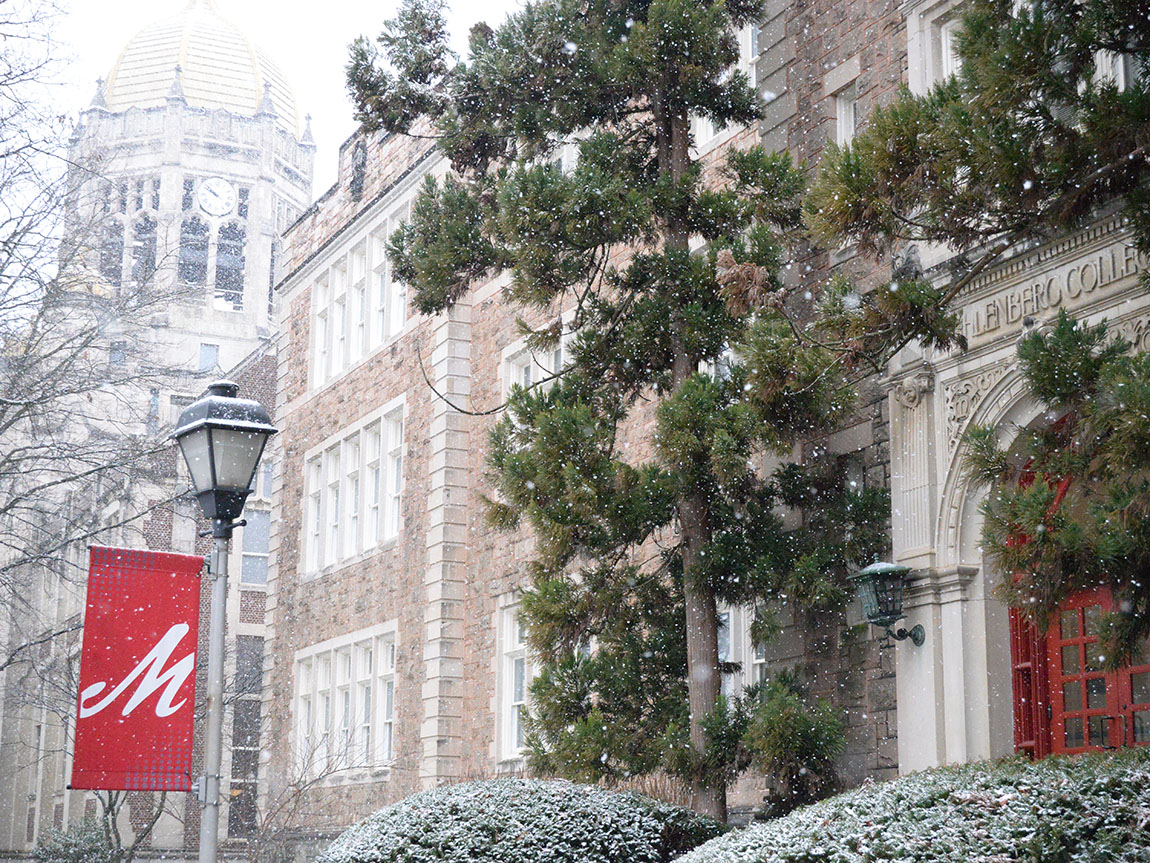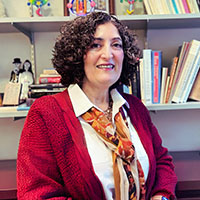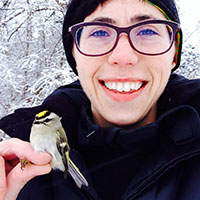Muhlenberg College Announces Faculty Promotions
Five members of the faculty were recently awarded tenure and promotion to associate professor by the college’s Board of Trustees.Thursday, February 13, 2025 03:29 PM

Kathleen Bachynski, Ph.D., associate professor of public health
 Holding a master’s degree in public health from the University of Michigan and a doctorate from Columbia University, Bachynski focuses her research on injury prevention, sports safety, youth health, and public health ethics. Her 2019 book, “No Game for Boys to Play: The History of Youth Football and the Origins of a Public Health Crisis,” confronts historical debates over youth tackle football safety.
Holding a master’s degree in public health from the University of Michigan and a doctorate from Columbia University, Bachynski focuses her research on injury prevention, sports safety, youth health, and public health ethics. Her 2019 book, “No Game for Boys to Play: The History of Youth Football and the Origins of a Public Health Crisis,” confronts historical debates over youth tackle football safety.
In the classroom, Bachynski is guided by the interdisciplinary nature of public health — which spans natural sciences, social sciences, and humanities — and is committed to exploring public health issues in scientific, historical, and cultural context.
“I want students to gain a critical understanding of the range of factors involved in influencing the nature and scope of public health challenges,” says Bachynski. “My goal is for students to leave the classroom more empowered to address socially relevant and intellectually demanding public health questions, with sharper critical research and writing skills that can be applied to a wide range of endeavors.”
Heidi Cruz-Austin, M.F.A., associate professor of dance
 copy.jpg) A lifelong student, professional dancer, company director, and instructor, Cruz-Austin danced with the Pennsylvania Ballet and was a founding member and dancer of BalletX (Philadelphia’s premier contemporary ballet) before earning a Master of Fine Arts degree in dance from the University of the Arts.
A lifelong student, professional dancer, company director, and instructor, Cruz-Austin danced with the Pennsylvania Ballet and was a founding member and dancer of BalletX (Philadelphia’s premier contemporary ballet) before earning a Master of Fine Arts degree in dance from the University of the Arts.
“For my thesis, I studied Black feminine stereotypes and archetypes through time and how Black women are finding new ways to feel empowered and have their voices heard,” says Cruz-Austin, who now teaches a Muhlenberg course exploring the topic. “Ballet is a beautiful art form steeped in many traditions and aesthetics that, for many, have been accompanied by barriers and obstacles. A challenging obstruction is present in the indoctrinated ideologies of ballet schools, instructors, and companies.”
Preferring the identity of a mentor to a teacher, Cruz-Austin guides students toward making more of their own choices while allowing room to make mistakes and learn from them.
“When a student walks into my class, they can expect to be seen,” she says. “My success in teaching a class is greatly enhanced when I can create an environment of trust. Good communication allows me to hold attention with the understanding that growth happens where attention meets effort.”
David Romberg, M.F.A., associate professor of film studies
 Holding a bachelor’s degree in fine arts and a Master of Fine Arts degree in film and media arts from Temple University, Romberg is an award-winning Latin American filmmaker and educator, interested in how experimentation in film production can challenge mainstream narratives and forms in media by embracing alternative voices and modes of production.
Holding a bachelor’s degree in fine arts and a Master of Fine Arts degree in film and media arts from Temple University, Romberg is an award-winning Latin American filmmaker and educator, interested in how experimentation in film production can challenge mainstream narratives and forms in media by embracing alternative voices and modes of production.
Romberg describes his classes as workshops that promote learning by encouraging controlled ‘mistakes’ and taking intentional risks in which students consider how they can evolve artistically, which often requires feeling uncomfortable in unfamiliar territories.
As a filmmaker, Romberg received a 2024 award from the Sundance Documentary Fund for “Art After-Life,” in which he employs generative AI technology to allow him to posthumously converse with his father, renowned Latin American artist Osvaldo Romberg. “Art After-Life” examines the boundaries of art and the ethics of representation within the digital age amidst the forces of grief and loss. The film has been scheduled for release on public television and streaming platforms in 2026.
“I make films that combine documentary and fiction modes of storytelling through community-based collaborative production,” says Romberg, who is working with Muhlenberg students, alumni, and computer science professor Hamed Yaghoobian on “Art After-Life.” “I am particularly interested in telling stories that meditate on the meaning of home or refuge in the context of immigration, political turmoil, and displacement.”
Mirna Trauger, Ph.D., associate professor of Spanish
 Trauger earned a bachelor’s degree in Spanish and French at Moravian College as well as a master’s degree and doctorate in Spanish from Rutgers University. Primarily specializing in 20th and 21st century Hispanic Caribbean literature, postmodern writing, and theory, her most recent research focuses on the representation of trauma and illness in Latin American texts and film. She integrated her scholarly work with her teaching in her recently offered capstone course titled "Trauma and Healing in Hispanic Texts."
Trauger earned a bachelor’s degree in Spanish and French at Moravian College as well as a master’s degree and doctorate in Spanish from Rutgers University. Primarily specializing in 20th and 21st century Hispanic Caribbean literature, postmodern writing, and theory, her most recent research focuses on the representation of trauma and illness in Latin American texts and film. She integrated her scholarly work with her teaching in her recently offered capstone course titled "Trauma and Healing in Hispanic Texts."
“I teach Spanish and Latin American literature and culture because I believe language learning is a way for my students to build bridges and make connections across cultures, both in the U.S. as well as abroad,” says Trauger, who shares that "learning a second language can be a powerful tool in bringing humans together, and in teaching students to appreciate and respect diversity."
“It is important for my students to know that a language does not exist in a vacuum, that they will not truly know a language unless they know the contexts in which it is spoken and the cultural practices of those who speak it. My goal in every class is for my students to see language learning as an asset to their future career and to their personal growth.”
Leah Wilson, Ph.D., associate professor of neuroscience

“I take great pleasure in introducing students to the questions that initially attracted me to science and to an analytical framework that I believe will serve them across disciplines and beyond the classroom,” says Wilson. “I hope that students leave my classes with deepened curiosity about the natural world and an appreciation for the range of techniques we can use to investigate neurobiological processes.”
Grounded in a deep curiosity about behavior, Wilson’s research explores animal behavior from both mechanistic and functional perspectives. Students in her lab investigate the neural systems that regulate social behavior in zebrafish.
“Many of the neurochemical systems that regulate social behavior in fish also regulate social behavior in amphibians, birds, and mammals, including humans,” says Wilson.
